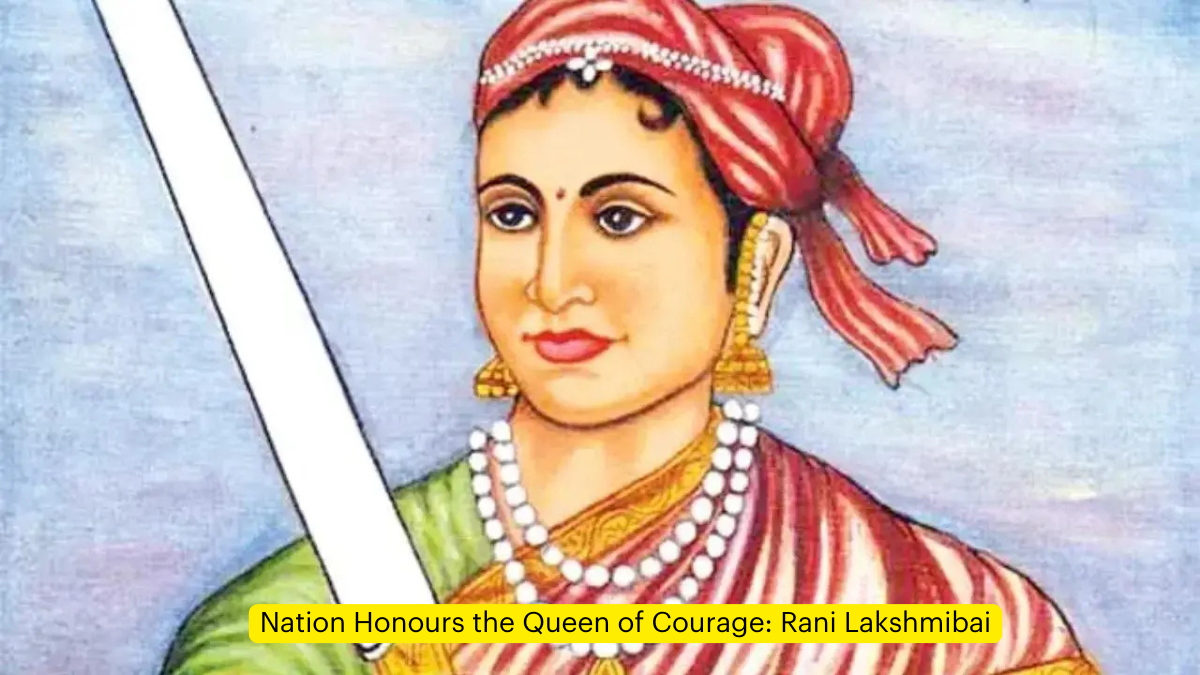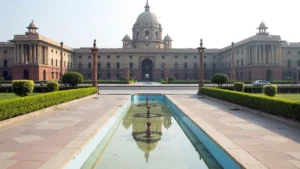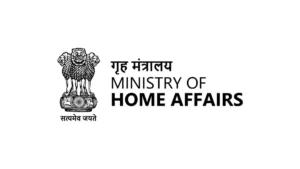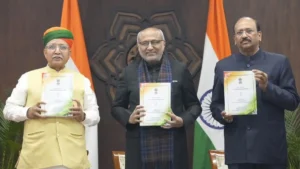India celebrated the birth anniversary of Rani Lakshmibai, the legendary Queen of Jhansi, with heartfelt tributes and nationwide admiration for her extraordinary courage and patriotism. Her pivotal role during the First Indian War of Independence in 1857 continues to inspire generations, making her a symbol of unparalleled bravery and resistance against colonial oppression.
A Unified Tribute from Leaders Across Political Spectrum
Prime Minister Narendra Modi, along with several prominent leaders, led the nation in paying homage to Rani Lakshmibai. The Prime Minister’s tribute highlighted her indomitable spirit and sacrifice for India’s independence.
Congress National President Mallikarjun Kharge praised Rani Lakshmibai as an ‘epitome of unmatched heroism and valour.’ He acknowledged her contributions in challenging British rule, emphasizing her decisive role in inspiring countless others during the revolt of 1857.
Other political figures, including Union Minister Nitin Gadkari and Chhattisgarh Chief Minister Vishnu Deo Sai, joined in commemorating her legacy. Gadkari remarked on her strategic leadership and courage, while Sai emphasized her sacrificial spirit as a cornerstone of India’s freedom struggle.
Both BJP and Congress leaders came together to honor her, with BJP’s Rajeev Chandrasekhar recognizing her influence on Indian history and Congress leader Randeep Surjewala praising her for leaving an indelible mark on future generations.
The Legacy of Rani Lakshmibai
Rani Lakshmibai, born on November 19, 1828, in Varanasi, was an extraordinary figure in Indian history. She became the Queen of Jhansi through her marriage to Raja Gangadhar Rao and rose to prominence for her fierce resistance against British colonizers during the 1857 revolt, also known as the First War of Indian Independence.
- Her Defiance Against British Oppression:
When the British East India Company attempted to annex Jhansi under the Doctrine of Lapse following her husband’s death, Rani Lakshmibai refused to cede her kingdom. Her resistance became legendary when she declared, “I shall not surrender my Jhansi.” - A Fearless Leader in Battle:
She led her troops into battle, fighting valiantly against the British forces. Her strategy, courage, and leadership turned Jhansi into a bastion of rebellion. Even in the face of overwhelming odds, she continued to inspire her followers with her unwavering determination. - The Ultimate Sacrifice:
Rani Lakshmibai’s life came to a heroic end in June 1858, during the battle of Gwalior, where she fought valiantly against British forces. Her martyrdom cemented her legacy as a freedom fighter who preferred death over surrender.
Commemorating Her Courage Today
The birth anniversary of Rani Lakshmibai was marked by nationwide celebrations that transcended political affiliations. Events and cultural programs across the country celebrated her indomitable spirit and her role in shaping India’s independence movement.
- In schools and colleges, students performed plays and recited poems celebrating her life and bravery.
- Civic organizations organized marches and exhibitions to educate younger generations about her legacy.
The day also served as a reminder of the empowerment of women, with leaders urging the nation to draw inspiration from her courage to overcome challenges in today’s world.
Why Rani Lakshmibai Matters
Rani Lakshmibai remains a timeless icon of empowerment, resistance, and patriotism. Her courage and leadership continue to inspire not just Indians but people around the world who fight for freedom and justice.
As the Prime Minister noted in his tribute, “Rani Lakshmibai is a beacon of strength and resolve. Her legacy will forever remain etched in our hearts.”
The nation’s collective memory of her serves as a testament to her enduring relevance and a call to honor the sacrifices of those who laid down their lives for India’s freedom.
Summary of the News
| Aspect | Details |
|---|---|
| Occasion | Birth Anniversary of Rani Lakshmibai (November 19, 1828). |
| Significance | Remembering her courage, leadership, and role in the 1857 First War of Independence. |
| Historical Legacy | – Born in Varanasi, married to Raja Gangadhar Rao, became Queen of Jhansi. |
| – Resisted British annexation under the Doctrine of Lapse. | |
| – Famous declaration: “I shall not surrender my Jhansi.” | |
| – Led battles with strategic leadership and courage; martyred in Gwalior, 1858. |



 Big Change at Rashtrapati Bhavan! Lutyen...
Big Change at Rashtrapati Bhavan! Lutyen...
 India Launches ‘Prahaar’: New National C...
India Launches ‘Prahaar’: New National C...
 Vice-President Launches Tamil & Guja...
Vice-President Launches Tamil & Guja...








